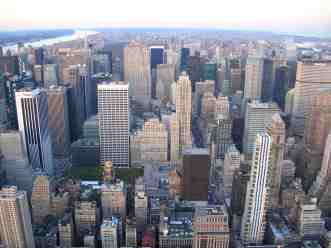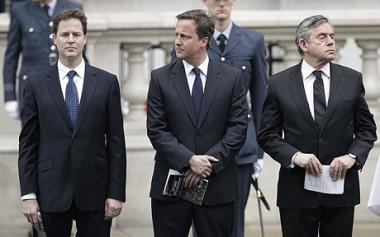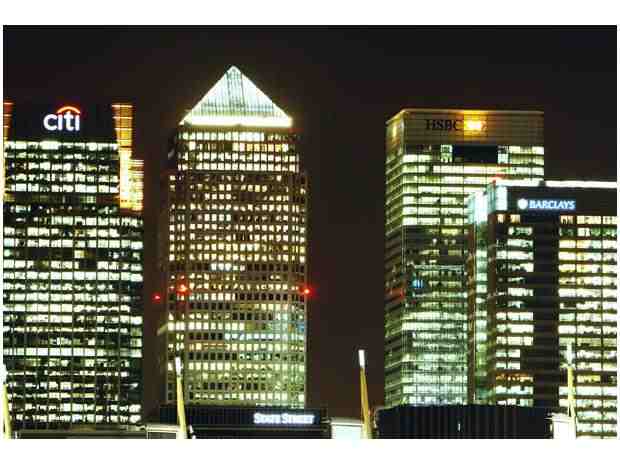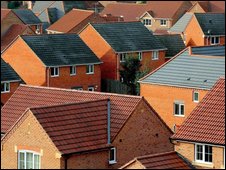349: UK and US property investor's update
11-04-2010

PropertyInvesting.net team www.google.co.uk
US State of the Nation: It’s playing out very similar to how we thought it would.... there has been a mirage US economic recovery bourn out of $2 Trillion of printed money. The Administration seem to have it wrong in focussing on healthcare for the poor, an anti-business rhetoric, tax increases for the wealthy and beating up on Wall Street bankers. All populist tactics. The result was hardly a surprise – the Democrats got dumped out of controlling Congress, a humiliating defeat that means no more radical left-leaning policies can be enacted in the next two years. President Obama’s "wings have been clipped" and it's likely another two years of drifting will culminate in the Democrats losing office in a few years time. What the  Democrats fail to realise is that increasing taxes, printing money, saving inefficient car plants and trying to force through global warming climate change tax increases does not lead to increased economic growth, jobs, prosperity and wealth. It has the opposite impact. It tends to drive businesses overseas leading to lower investment levels and results to the inefficient use of scarce capital. Despite pumping $2 Trillion into the economy, the country has barely got put of recession and continues loosing jobs. The money has been spent on the wrong things. Unemployment is now running at 9.6%. The dollar has crashed 20% in the last 12 months - with no end in sight for the dollar weakness.
Democrats fail to realise is that increasing taxes, printing money, saving inefficient car plants and trying to force through global warming climate change tax increases does not lead to increased economic growth, jobs, prosperity and wealth. It has the opposite impact. It tends to drive businesses overseas leading to lower investment levels and results to the inefficient use of scarce capital. Despite pumping $2 Trillion into the economy, the country has barely got put of recession and continues loosing jobs. The money has been spent on the wrong things. Unemployment is now running at 9.6%. The dollar has crashed 20% in the last 12 months - with no end in sight for the dollar weakness.
The announcement 4 Nov 2010 that the US will start printing an additional $0.6 Trillion money had the obvious immediate affect:
· Dollar dropped
· Oil prices rose (and with it US oil import costs)
· Oil stocks rose – as the new speculative money headed for the only sure investment in town
· National debt increased further
US Economy: Precisely how this will help the US economy in the medium to long term, we are not really sure - and remain very skeptical. For property investors, as oil prices rise for Americans (in dollar terms), this will stifle the recovery attempted from the phantom printed money. Expect high unemployment to remain, low inflation, stagnation and the economy heading into recession as soon as oil prices rise above about $115/bbl (not far off). It’s interesting to think the very thing – printed money - that was su pposed to get the US economy moving is likely to stimulate higher oil prices as speculative money heads in – then this will probably lead to the next US recession. Just to put some numbers to the analysis, did you know that for every US citizen the annual expenditure on healthcare alone is $6,500 – so for a family of four this cost is $26,000 – how can a country afford this? Meanwhile oil imports amount to $1,500 a year per person, then military spending is a similar amount. This is a massive drain on a huge economy that might otherwise do quite well. The inefficient car, truck and rail transportation system does not bode well for the future. The USA uses far too much energy for the GDP it creates – and the healthcare, military and oil import bills are gigantic and unsustainable. One day, the Chinese will stop buying the dollar – then it will crash further and interest rates will sky-rocket. The USA is heading for a big accident like Japan if it does not start controlling its spending and continues printing money - and continues to import 9 million barrels of oil a day. The US citizens are resourceful, motivated, hard working, well educated and positive in outlook – so as soon as they get a change in Administration – they will likely pull out of the mess. But the current p
pposed to get the US economy moving is likely to stimulate higher oil prices as speculative money heads in – then this will probably lead to the next US recession. Just to put some numbers to the analysis, did you know that for every US citizen the annual expenditure on healthcare alone is $6,500 – so for a family of four this cost is $26,000 – how can a country afford this? Meanwhile oil imports amount to $1,500 a year per person, then military spending is a similar amount. This is a massive drain on a huge economy that might otherwise do quite well. The inefficient car, truck and rail transportation system does not bode well for the future. The USA uses far too much energy for the GDP it creates – and the healthcare, military and oil import bills are gigantic and unsustainable. One day, the Chinese will stop buying the dollar – then it will crash further and interest rates will sky-rocket. The USA is heading for a big accident like Japan if it does not start controlling its spending and continues printing money - and continues to import 9 million barrels of oil a day. The US citizens are resourceful, motivated, hard working, well educated and positive in outlook – so as soon as they get a change in Administration – they will likely pull out of the mess. But the current p rinting and spending binge has to end – otherwise it will be constant recession and a crashed business sector. Just when the US economy needed a bit of austerity, they voted in a big spender - President Obama and the Democrats - if the economy has been doing well for a few years, it would be less disasterous. Our view is that the US needs to cut down its oil usage and reduce (not increase) it's printing of money.
rinting and spending binge has to end – otherwise it will be constant recession and a crashed business sector. Just when the US economy needed a bit of austerity, they voted in a big spender - President Obama and the Democrats - if the economy has been doing well for a few years, it would be less disasterous. Our view is that the US needs to cut down its oil usage and reduce (not increase) it's printing of money.
Avoid USA Whilst Democrats Spend: Our advice is – steer clear of the USA for real estate investment – until a Republican government is elected in - an administration that will control expenditure, try to reduce debt and create policies that support business, jobs and sustainable growth. If you do choose to invest in the USA, probably the best place at the moment is North Dakota – this state has seen its oil production almost double in the last few years off the back of the Bakken Oil Play expansion – and this is set to continue. Depopulation has stopped. Rental property for oil workers springs to mind. Texas could also do better than expected and northern Louisiana as the Shale Gas play takes off – and natural gas prices drift higher. California has such massive debts – it's an accident waiting to happen albeit there is an expanding population and a lot of interesting high technology companies like Google. New York will remain the key financial centre – but some of that business will drift overseas with the current higher taxes and anti-business sentiment.
Gold: For all those smart investors - watch out because gold it not necessarily a one way bet when the US economy suffs. If the economy gets very bad - just when you think you are safe with gold - there is a chance your gold will be confiscated by the government. Yes, this happened in the 1930s - so why wouldn't it happen again from an anti-business government? Not likely but always possible - and for this reason, if we were US investors, we'd be putting our money into China and India rather than gold in the US. Or buying gold and depositing it in Swiss or safe overseas banks. Oil and oil companies stock is a safer bet, especially if the stock is purchased in Canada, UK, Australia or Norway - all strengthening currencies. Even in the USA, it's difficult to envisage the US government confiscating oil - yes, windfall taxes are possible, but we think the chance of them seize oil shares is low?
UK Improving: Meanwhile in the UK, things are slowly improving. No more talk of the UK credit rating being downgraded from AAA. Concrete plans are in place to reduce the massive public spending binge that took place in the last government. Labour have a new leader – Ed Miliband – voted in by the unions and the likelihood he will get elected as Prime Minister in 3-4 years time must be remote because people won’t trust someone with the economy that has no economic experience and is propped up by the trade unions. A re-balance is taking place from public to private sect or, from north to south, from spending binge to tight spend, from left to right, from high tax to low tax, over-regulation to de-regulation and with it, encouragement for private enterprise, families and hard work. We expect GDP to remain subdued for a few years then take off as the positive effects of people leaving high paid public sector jobs (being paid to spend) then entering private sector jobs (being paid to cut costs and create wealth and profits and tax revenues) takes affect. You simply cannot expect to grow the public sector without causing a recession eventually – because all taxes come from the private sector. If you suppress the private sector and grow the public sector, you will always cause a recession in the long run. It’s happened every time Labour have got into power. It’s always the Tories that clear up the mess. As an example, how building new school halls or paying £40,000 a year to a family for housing benefit can lead to growth is business sense gone barmy – the people who drew up those policies had never worked in business or have any experience whatsoever in their families or immediate peer group in business. Its hardly surprizing the numbers never add up and national debts always increase under Labour governments.
or, from north to south, from spending binge to tight spend, from left to right, from high tax to low tax, over-regulation to de-regulation and with it, encouragement for private enterprise, families and hard work. We expect GDP to remain subdued for a few years then take off as the positive effects of people leaving high paid public sector jobs (being paid to spend) then entering private sector jobs (being paid to cut costs and create wealth and profits and tax revenues) takes affect. You simply cannot expect to grow the public sector without causing a recession eventually – because all taxes come from the private sector. If you suppress the private sector and grow the public sector, you will always cause a recession in the long run. It’s happened every time Labour have got into power. It’s always the Tories that clear up the mess. As an example, how building new school halls or paying £40,000 a year to a family for housing benefit can lead to growth is business sense gone barmy – the people who drew up those policies had never worked in business or have any experience whatsoever in their families or immediate peer group in business. Its hardly surprizing the numbers never add up and national debts always increase under Labour governments.
Best Places to Invest: For UK property investor, the only safest places are London and Aberdeen – both oil centres - one is the oil production and engineering centre Aberdeen, the other is the mining and oil company financing centre London. Private enterprise will prosper in the long run as the Tory policies start to stimulate business and public sector cut-backs drag down the North and Midlands. Expect the wealthy people in London and the SE to spend their money on second homes in the south and south-west. The smart money will avoid investing in areas that are set for low growth in the next five years with public sector jobs cuts - so second home prices will remain suppressed in the Midlands and North. Some rays of hope for the north is Leeds (finance), Manchester (business) and places like Harrogate, Buxton, York and Scarborough (wealthy northerners retiring to spa towns and historic university cities). We would avoid Liverpool, Hull and Middlesboro for example – because these large depressed urban areas will suffer from both heavy manufacturing decline and massive public sector jobs cuts. The wealth will tend to move out to better areas and unemployment will likely rise through the first half of 2011 - possibly continuing after that. Towns and cities in the south will be far less badly affected – particularly if they have a lot of private sector activity like Southampton, Bristol, Newbury and Swindon. Watch out for university cities that have high public sector employment and university cuts in planned – like Oxford and Cambridge – it’s not clear whether these area will remain robust as university fees sky-rocket and less money is pumped into universities. Middle of the road cities like Nottingham and Stoke will also suffer from loss of public sector jobs, lack of private enterprise and decline in manufacturing, particularly if Sterling value rises - as is often the case under Tory governments.
enterprise will prosper in the long run as the Tory policies start to stimulate business and public sector cut-backs drag down the North and Midlands. Expect the wealthy people in London and the SE to spend their money on second homes in the south and south-west. The smart money will avoid investing in areas that are set for low growth in the next five years with public sector jobs cuts - so second home prices will remain suppressed in the Midlands and North. Some rays of hope for the north is Leeds (finance), Manchester (business) and places like Harrogate, Buxton, York and Scarborough (wealthy northerners retiring to spa towns and historic university cities). We would avoid Liverpool, Hull and Middlesboro for example – because these large depressed urban areas will suffer from both heavy manufacturing decline and massive public sector jobs cuts. The wealth will tend to move out to better areas and unemployment will likely rise through the first half of 2011 - possibly continuing after that. Towns and cities in the south will be far less badly affected – particularly if they have a lot of private sector activity like Southampton, Bristol, Newbury and Swindon. Watch out for university cities that have high public sector employment and university cuts in planned – like Oxford and Cambridge – it’s not clear whether these area will remain robust as university fees sky-rocket and less money is pumped into universities. Middle of the road cities like Nottingham and Stoke will also suffer from loss of public sector jobs, lack of private enterprise and decline in manufacturing, particularly if Sterling value rises - as is often the case under Tory governments.
First Time Buyers Almost Extinct: One things if for sure – first time buyers will become an even rarer bread. The rental sector is set to expand as mortgage finance remains limited to robust wealthy investors and baby-boomer who have equity in existing property. The younger generation have been hammered by:
· Student loans
· Credit card debt and sloppy spending habits
· Rising rents
· High cost of weddings and aspiration to spend small fortunes on wedding
· Frequent foreign holidays
· Buying cars, electrical goods, cloths and other trendy consumer items
· Lack of saving and investment
· Young immigrants that cannot get UK mortgages
The Young Ones: Most young people have given in ever saving enough money for a deposit on a property. Many have been getting hand-outs from their relatively wealthy baby-boomer parents for some years, but this is also likely to dry up with higher taxes, public spending reductions and jobs losses, and pensions that are worth less. May be we are being a bit hard here – we think people in their 20s generally lack business and financial acumen, are not motivated to create and build wealth. Many prefer a good safe job in a company or public sector – and seem risk averse. That’s a real shame and it’s probably a reflection of their parents, teachers and peer groups. 13 years of Labour – with a “benefits” system and “safety nets” galore plus the safety net of their middle class wealthy public sector baby-boomer parents has left these people devoid of business ideas and motivation. We say – get out there – take some risk – get the reward – start a business – do something exciting! But alas, we’re probably speaking to deaf ears.
for a deposit on a property. Many have been getting hand-outs from their relatively wealthy baby-boomer parents for some years, but this is also likely to dry up with higher taxes, public spending reductions and jobs losses, and pensions that are worth less. May be we are being a bit hard here – we think people in their 20s generally lack business and financial acumen, are not motivated to create and build wealth. Many prefer a good safe job in a company or public sector – and seem risk averse. That’s a real shame and it’s probably a reflection of their parents, teachers and peer groups. 13 years of Labour – with a “benefits” system and “safety nets” galore plus the safety net of their middle class wealthy public sector baby-boomer parents has left these people devoid of business ideas and motivation. We say – get out there – take some risk – get the reward – start a business – do something exciting! But alas, we’re probably speaking to deaf ears.
Rental Opportunity: The net results is likely to be a shortage of rental property of all kinds, with depressed property prices for years. Buy-to-let investors that are only interested in cashflow and can get high yielding rental properties and are good at managing these (low maintenance costs, low taxes, low voids, high rents, many occupants, ability to rent within stiff regulations) – then the business environment is a good one. Yes, its tough getting finance at the moment, but for so called “professional” landlords or those with good financial backing, it’s probably going to be a lucrative period if you have high yielding properties in southern England.
Home Building Crisis: One of the most disturbing things is the lack of home building – this is down to a miserable 140,000 properties a year. Most of these are tiny flats and cramped in-fill properties. Very few houses with gardens are being built. Meanwhile about 25,000 properties are demolished each year. Millions of properties remain empty – partly because excessive regulation has made them too expensive to renovate and upgrade then rent out. They lie empty driven out of the market by excess ive HMO regulations – fire, electric, energy, red tape and council fees. They are also not worth converting to flats because the property market is depressed. No encouragement or tax breaks are available to get these properties back in use – they remain empty – and meanwhile there is a housing shortage of escalating proportions and rental prices are rising. Frankly the system is broken. Landlords find it difficult making any money because costs are so high and regulation hampers progress. Renters suffer from poor quality cramped homes with high rents. Nimbys stop building in almost all locations. Developers are going slow because they are scared of taking on debt after the financial meltdown of 2008. And capital gains tax increase knocked the wind out of any sails that were flying – a 40% tax increase in developments. And a tax on inflated gains after 10 years with no tapers relief – crazy.
ive HMO regulations – fire, electric, energy, red tape and council fees. They are also not worth converting to flats because the property market is depressed. No encouragement or tax breaks are available to get these properties back in use – they remain empty – and meanwhile there is a housing shortage of escalating proportions and rental prices are rising. Frankly the system is broken. Landlords find it difficult making any money because costs are so high and regulation hampers progress. Renters suffer from poor quality cramped homes with high rents. Nimbys stop building in almost all locations. Developers are going slow because they are scared of taking on debt after the financial meltdown of 2008. And capital gains tax increase knocked the wind out of any sails that were flying – a 40% tax increase in developments. And a tax on inflated gains after 10 years with no tapers relief – crazy.
We hope these insights have been of interest – to help point you in the direction higher returns and lower business risks. One needs to be very disciplined and focussed in the current business environment to be able to make good returns. if you have any comments, please contact us on enquiries@propertyinvesting.net .

